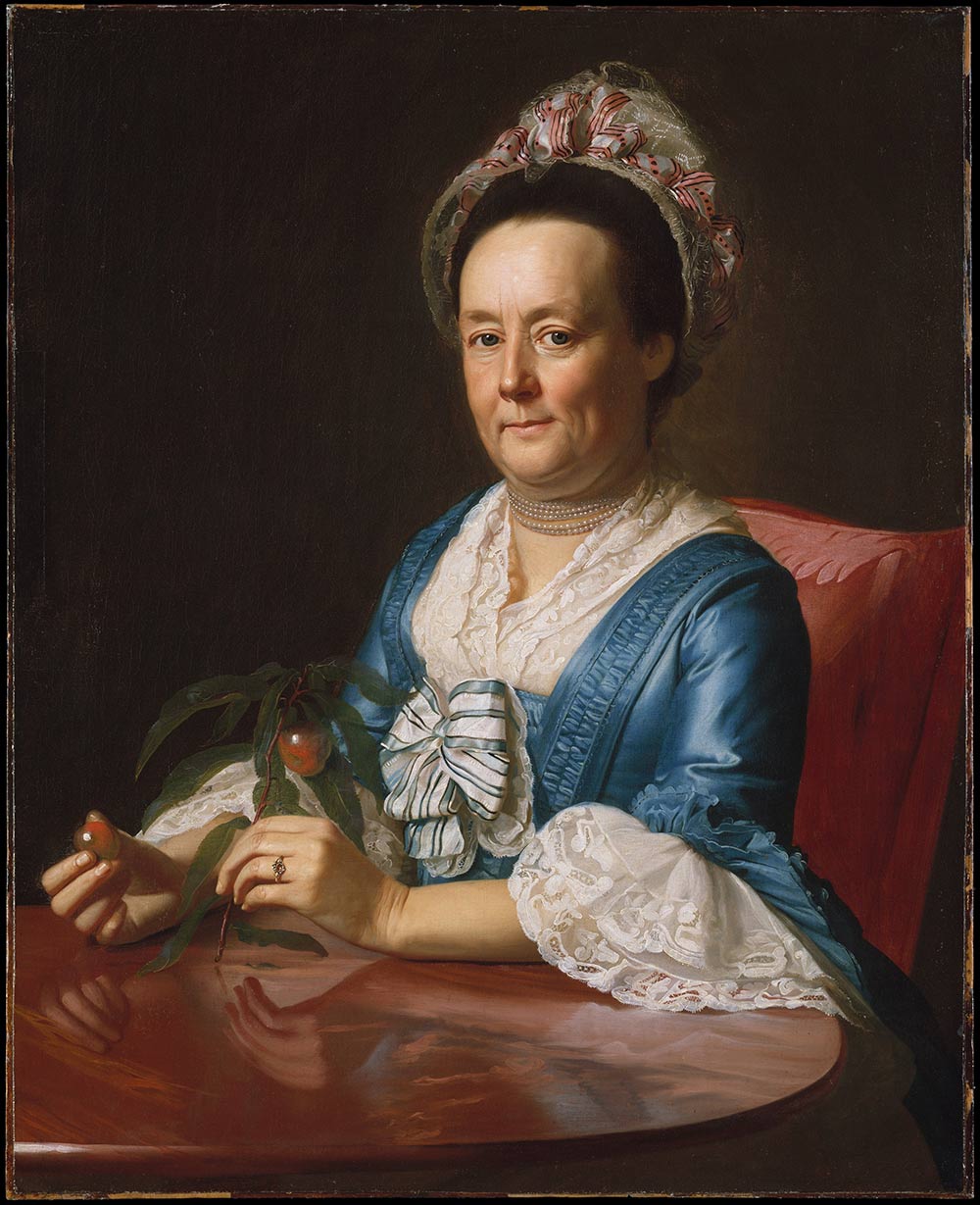The Lockes in Wedlock
Normally I wouldn’t find such a ceremony interesting, but that was all in service of the really juicy 250th anniversary that I can finally discuss this month: Locke’s departure from that job after people discovered he’d impregnated his housekeeper.
The earliest surviving source on that affair is the letter of John Andrews that I quoted here. That’s a mostly sympathetic account, dwelling on Locke’s religious crisis: he had mystified his colleagues by holding back from taking communion and leaving chapel suddenly during prayers. He exhibited “most sincere grief,” earning the “ye. compassn. of all.”
Yet Andrews also described Locke offering his housekeeper £150—for what, it’s not clear. A doctor who graduated in the Harvard class of 1782 told Harvard librarian John Langdon Sibley that he’d heard Locke had summoned his own physician, Dr. Marshall Spring of Watertown, but then couldn’t express his request. Was he trying to ask for an abortifacient?
Most striking, Andrews blamed Locke’s wife for the trouble, writing that her “vices, has been ye. means of drivg. him to it.”
Mary (Porter) Locke was born in 1738, daughter of the Rev. Samuel Porter of Sherborn. Her mother Mary, a Coolidge from Cambridge, died in 1752. Her father the minister died in 1758. At the age of twenty, therefore, she was left an orphan with a fair amount of property in her home town.
Samuel Locke came to Sherborn in 1759, having taught school and preached in Lancaster and Plymouth. Within a few months the congregation offered him the job of minister. In January 1760, less than two months after being ordained, Locke married Mary Porter in Natick.
On 11 February Locke wrote a letter to Edward Wigglesworth in Boston, having apparently heard that that young merchant was getting married:
It seems to be ordained by Providence in ye. oeconomy and constitution of all created, animate nature we are acquainted with that each individual of ye. several species should be drawn by some secret attraction to those of its own kind; and indeed it appears to be a necessary precaution for ye. preservation of order amidst ye. immense variety of creatures that people ye. world and for ye. regular conservation and increase of ye. several classes into which they are divided.Locke’s language was highly philosophic, but the bottom line was that he believed a man needed a wife for his “innumerable wants’ and “many powers.”
But man has a nature peculiarly adapted for society and friendly intercourse and is directly urged to it by ye. great difficulties, if not utter impossibility, of subsisting alone independent of and inconnected with others of ye. same nature with himself,—his wider capacities demand more gratifications, and he feels in himself innumerable wants which a life of sollitude cannot supply, and many powers to which it cannot give employment.
Hereupon he is naturally led by some affections amost peculiar to our kind to select some from among ye. many individuals of human nature for peculiar intimacy and tenderness in order to improve the condition of his existence and refine ye. common principles of benevolence into a peculiar affection for some individuals.
And I apprehend in particular with regard to ye. nuptial tie (ye. closest of any) we are not only directed to it by ye. constitution of our nature and ye. many miseries which a forlorn individual must necessarily suffer while he stands alone without any prop to support him, but also by ye. continued course of Providence in preserving in all ages such an apparent equality between ye. sexes.
This, I think is an additional call to every one to be up and doing. You will therefore, Sr., I trust, find a complyance with your duty in ye. respect a solid foundation of ye. most substantial happiness which this world affords,—and that it will be a happy medium of improvement in sosial virtue, and of increasing to you that felicity which I cannot describe but heartily wish to be ye. portion of every human creature in a way consistent with ye. wise designs of ye. great Father and governor of ye. universe.
The Lockes had three children in regular fashion:
- Samuel, Jr., in 1761.
- Mary in 1763.
- John in 1765.
At first Locke resisted recruitment by Harvard College, but in late 1769 he finally agreed and moved his family to Cambridge. Samuel and Mary were both familiar with that town, him from his college days and her from living with her maternal relations.
In his profile of Locke, Clifford K. Shipton wrote that “Mrs. Locke was a feeble, sickly woman,” but he cited no evidence to support that. Andrews was nastier, saying Mary’s unspecified “vices” had driven Samuel to adultery. Either way, the implication was that the college president turned to his housekeeper for sex that he couldn’t have with his wife.
The one female commenter I’ve found, Hannah Winthrop, made no remarks about Mary Locke but wrote that she hoped the post of president would “be filld with a person who may do Honor to the Station.”
In December 1773, 250 years ago this month, the Locke family returned to the town of Sherborn. The town’s pulpit had been filled by another minister, and no doubt some people no longer saw Samuel Locke as fit to preach. But Mary still owned property there, and Samuel had bought 120 more acres in 1772. The Lockes also had three children to raise, aged twelve to eight.
TOMORROW: Can this marriage be saved?






